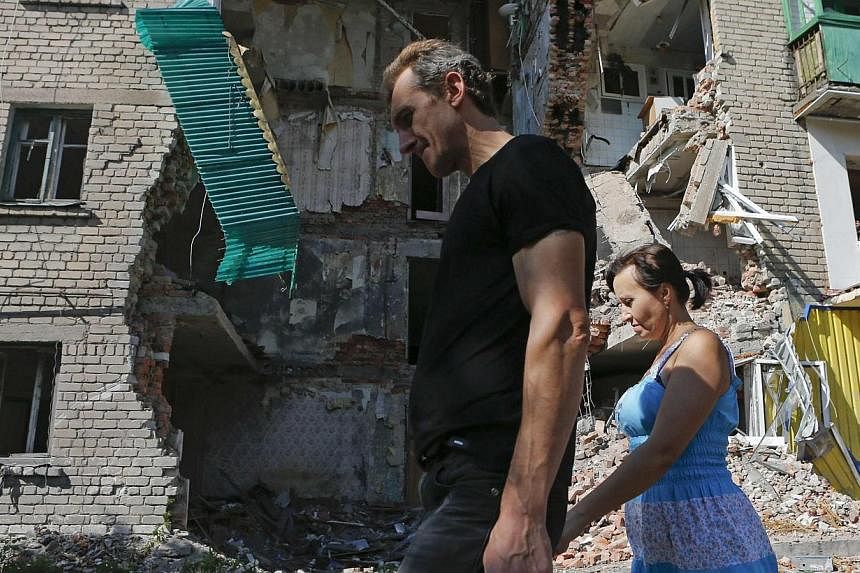WASHINGTON (REUTERS) - The International Monetary Fund (IMF) signed off on its first review of Ukraine's US$17 billion (S$21 billion) loan programme on Friday, but warned risks loomed ahead as long as Kiev continued to fight a pro-Russian separatist rebellion in the east.
The IMF board's approval confirms Ukraine is on track so far with most of the bailout's conditions, and allows the disbursement of US$1.7 billion the former Soviet bloc country needs to shore up its depleted foreign currency reserves and support the state budget.
"Downside risks to the program remain very high," IMF managing director Christine Lagarde said in a statement. "The programme's success hinges on a timely resolution of the conflict in the east, as well as on the authorities' strong policy performance and adherence to the planned reforms."
The IMF praised the government's commitment to economic reforms despite the ongoing conflict. But it said Kiev was still not able to meet some of the programme targets, including for the state budget, the level of net international reserves at the central bank, and the deficit of Naftogaz, the state-run oil and gas company.
Ukraine's previous two IMF programmes were suspended after the government did not do as promised, such as raising natural gas prices.
The IMF also agreed to Ukraine's request to combine the next two reviews of the programme, which would likely total around US$2.2 billion, since the recent disbursement was somewhat delayed.
"(Ukraine's) strong policy record despite the much worse-than-expected environment is encouraging in light of the implementation problems that derailed previous programmes and thus augurs well for the authorities' ability to keep the program on track," Lagarde said.
"However, the escalating conflict in the east and ongoing geopolitical tensions have weighed heavily on the economy and society, causing a deeper recession and deviations from programme targets in the short term," she said.
Ukrainian troops and pro-Russian rebels have been fighting since April in the heavily industrialised regions of Donetsk and Luhansk, which together contributed nearly 17 per cent of Ukrainian gross domestic product in 2013.
"The (revenue) that we haven't been receiving from Donetsk and Luhansk is miniscule compared with the billions we are spending on war," Ukrainian Prime Minister Arseny Yatseniuk said at a government meeting earlier on Friday. "For us it is critically important to get a positive decision from the IMF and we've done everything (to achieve) this," he said.
Ukraine received its first tranche of slightly more than US$3 billion in May under the loan programme. Analysts have said the Ukrainian economy will slide deeper into recession this year, despite the IMF aid deal, as the rebellion cripples activity in the industrial east and scares off foreign investors.
During its last visit to Kiev in July, the IMF downgraded its growth forecast for this year to a 6.5 per cent contraction, from 5 per cent previously.

